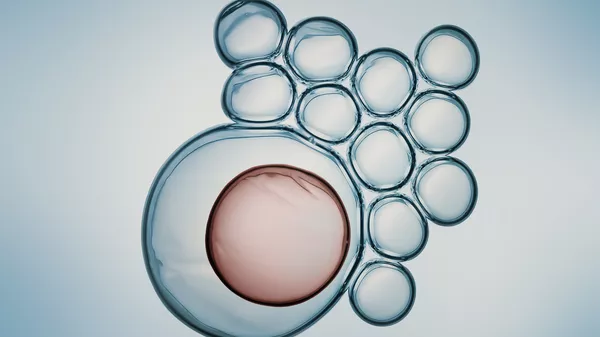Manipulation of Organisms' Genomes Using Biotechnology to Create Genetically Modified Organisms (GMOs)

The field of biotechnology has transformed the way scientists manipulate genomes, leading to the development of genetically modified organisms (GMOs). These organisms are altered at the DNA level to enhance desired traits such as resistance to diseases, pests, or environmental conditions. GMOs have impacted agriculture, medicine, and industrial processes, offering innovative solutions but also raising ethical concerns. This article provides an in-depth look at how biotechnology enables genome manipulation to create GMOs, their benefits, challenges, and controversies.
What are GMOs?
Genetically Modified Organisms (GMOs) are living organisms—such as plants, animals, or microbes—whose genetic material has been altered using genetic engineering techniques. Unlike traditional crossbreeding, genetic modification allows precise changes to be made at the molecular level, including the introduction of new genes from unrelated species.
Key Biotechnology Techniques Used to Create GMOs
- Recombinant DNA Technology
- Recombinant DNA technology involves combining DNA from two or more sources to create a new gene combination.
- An example is inserting a bacterial gene that produces a toxin (Bt) into corn, making it resistant to pests.
- CRISPR-Cas9 Gene Editing
- CRISPR-Cas9 is a powerful tool that allows scientists to target and modify specific DNA sequences with precision.
- With CRISPR, researchers can knock out undesirable traits or introduce beneficial ones without affecting other parts of the genome.
- Agrobacterium-Mediated Transformation
- This method introduces foreign DNA into plant cells using a bacterium known as Agrobacterium tumefaciens.
- It is widely used to develop genetically modified crops like soybeans, tomatoes, and cotton.
Applications of GMOs
1. Agricultural GMOs
GMOs have revolutionized agriculture by improving crop yields, reducing the need for pesticides, and enhancing nutritional content. Common examples include:
- Bt Crops: Crops like Bt cotton and Bt maize are resistant to specific pests, reducing pesticide use.
- Herbicide-Resistant Crops: Genetically modified soybeans and canola resist herbicides, allowing farmers to manage weeds effectively.
- Golden Rice: This biofortified rice variety contains increased levels of vitamin A, combating nutritional deficiencies in developing countries.
2. Medical GMOs
In medicine, GMOs are used to develop vaccines, therapies, and drugs. Some key examples include:
- Insulin Production: Genetically modified bacteria produce insulin for diabetes treatment.
- Gene Therapy: Scientists modify viruses to deliver corrective genes to treat genetic disorders.
- Edible Vaccines: Researchers are exploring crops that can produce vaccines, potentially simplifying immunization programs.
3. Environmental and Industrial GMOs
GMOs contribute to eco-friendly solutions by supporting sustainable agriculture and industrial production:
- Biofuel Production: Genetically modified microbes break down plant materials to produce biofuels.
- Biodegradable Plastics: Bacteria engineered to produce bioplastics help reduce plastic pollution.
Benefits of GMOs
- Increased Crop Yields: GMOs help farmers grow more food with fewer inputs.
- Reduced Pesticide Use: Pest-resistant crops minimize the need for chemical pesticides, benefiting the environment.
- Enhanced Nutrition: Biofortified crops, like Golden Rice, address malnutrition in vulnerable populations.
- Medical Breakthroughs: Genetically modified organisms facilitate the development of life-saving drugs and treatments.
- Environmental Sustainability: GMOs support practices that reduce soil erosion, water consumption, and chemical runoff.
Challenges and Ethical Concerns
- Environmental Risks:
- The introduction of GMOs into ecosystems may affect biodiversity and disrupt natural ecosystems. For example, cross-pollination with wild species can create superweeds.
- Health Concerns:
- Some people worry about potential long-term health risks from consuming GMOs, although scientific studies have found no evidence of harm.
- Economic and Social Issues:
- GMOs raise concerns about corporate control of seeds and food production, affecting small farmers.
- Patents on genetically modified crops can lead to monopolies and restrict farmers' access to seeds.
- Ethical Dilemmas:
- Some people argue against altering the natural genome of organisms for human benefit, citing philosophical and religious objections.
Regulatory Framework for GMOs
To address safety and ethical concerns, many countries have established regulatory frameworks for GMO development, testing, and commercialization. For example:
- United States: The USDA, FDA, and EPA regulate GMOs, focusing on their safety for consumers and the environment.
- European Union: The EU follows a precautionary approach, requiring thorough testing before approving GMOs.
- Kenya: Countries like Kenya have gradually adopted GMOs to improve food security while balancing environmental safety.
Future of GMOs
The future of GMOs lies in precision agriculture, personalized medicine, and sustainable development. As gene-editing technologies like CRISPR advance, new possibilities emerge, such as crops that can withstand climate change and gene therapies for rare diseases. However, balancing innovation with responsible use remains critical.
Conclusion
The manipulation of organisms’ genomes through biotechnology has led to the creation of genetically modified organisms (GMOs) that address agricultural, medical, and environmental challenges. While GMOs offer significant benefits, including improved crop yields and life-saving drugs, they also present ethical, environmental, and economic challenges. Understanding the science and the debates surrounding GMOs is essential for students, researchers, and consumers alike.
At EssayResearchScholar.com, we offer expert assistance with assignments on biotechnology, GMOs, and genetics. Our professionals guide students in mastering these complex topics, helping them succeed in their academic pursuits. Whether you need help with research papers, essays, or presentations, our team is here to support your academic journey.
This article provides a clear understanding of how biotechnology is transforming science and society through genome manipulation, equipping students with the knowledge they need to excel in their assignments.
